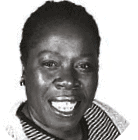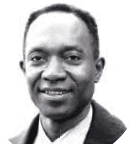The LGA has set up an information hub to help newly elected members get to grips with their role.
As a newly elected councillor, the amount of information you may be expected to be aware of and understand in the first few months of your role can seem very overwhelming. Responding to the needs of your communities, and understanding the challenges faced by residents and businesses, will become increasingly important as we emerge from the challenges of the past year, and as you embrace the challenges of building resilience and providing leadership of place in the post-pandemic local government landscape.
To support you in your new role, the LGA has developed a dedicated new councillor hub, to provide you with all the essential information you need as a newly elected councillor.
The hub has been developed as a ‘one-stop shop’ for vital information and advice to help you navigate the first few months of your term of office, and beyond.
“The hub outlines the support you can access from the LGA”
It is intended to complement and support the advice and training given to you through your own council’s induction programme. As well as providing useful information on the wider structure of local government, it offers key advice and support.
The hub outlines information about the support you can access from the LGA through our political group offices. It also signposts you to the many training and development opportunities offered through our government-funded sector support offer, including our wide range of webinars, events, e-learning, workbooks and development programmes.
We encourage you to make the most of all that the LGA offers and the hub is a great place to start to explore all that we have for you as newly elected members and in your continued ongoing development as councillors.
Designed to provide you with valuable insight into the wider political landscape, the hub also includes interviews with experienced councillors from different types of councils across the country, who give advice, discuss the roles they undertake, and offer their views on some of the frequently asked questions raised by new councillors.
Do please take a moment to hear their reflections, and see the panel (below) for their top tips for getting to grips with your new role.
Summer seminars
As part of our programme for newly elected councillors, and following on from our popular national welcome events in June, we are now arranging a series of short, one-off, open-access webinars.
Topics are in response to feedback from newly elected councillors and will be delivered over the summer months, and these virtual events will further help you embrace your role as an effective community leader.
Featuring views and insight from experienced councillors, these webinars are free to attend and can be booked on our website.
The first webinar in the programme, on being an effective ward councillor, will take place on 21 July, with a second – on developing a safe and effective social media presence – taking place later this summer.
Do please register for these events and look out for other sessions in the programme that will be of interest to you.
To complement these seminars, you should also take a look at the LGA’s Virtual Annual Conference, which takes place from 6-8 July and is free for members.
The conference will provide an opportunity to hear from central and local government leaders, and to discuss and debate a wide range of issues of importance to our sector – from the pandemic to children’s services, and economic recovery to housing. Newly elected councillors should find the range of sessions and discussions interesting.
Top tips for the recently elected…

Cllr Robert Flatley (Con) is Cabinet Support Member – Strategic Leadership, Culture and Tourism at Derbyshire County Council:
“Sit in on as many meetings as possible. Learn how the council works, how decisions are made, and learn the rules.
“Get involved with the community. There’s only so much you can do at the council office or on MS Teams meetings; you should see what projects are going on and get stuck in, and see what you can do to improve things locally.”

Cllr Paulette Hamilton (Lab) is Cabinet Member for Health and Social Care at Birmingham City Council:
“You can’t change the world overnight. It’s one step at a time. When you’re doing things, just know that to make change does take time. Don’t allow people to tell you what you cannot do; just work with the system and you can make the changes that will affect people’s lives.
“Learn the ropes. Learn policies, get to know your local area, get to learn who the professionals are in your area, get to know who the drivers are in your local area, and just take your time, build your networks, and make the changes you want, slowly. If you can know who’s in your area and who you can work with, you can make a massive difference, as you’re working with people in co-production instead of on your own.”

Cllr Sarah Rouse (Ind) is Leader and Portfolio Holder for Environmental Services at Malvern Hills District Council:
“Ask questions. When I first became a councillor, that’s all I did – if I didn’t understand something, I’d just ask. There’s never a stupid question and it’s the best way to learn. Every question you ask will make you a better councillor.
“Enjoy it. It might be stressful, and it’s a huge learning curve in the first year, but get through that and enjoy everything about it, because it’s not an experience everyone has and you may never get to do it again – so just go with it and do as much as you can.”

Cllr William Houngbo (Lib Dem) is Deputy Leader of the Majority Opposition Group on Southwark Council:
“Be confident. Your residents know you are in an elected role and the expectation on you can sometimes be very high, but you cannot please everybody. Sometimes you will need to compromise; it’s very important to be 100 per cent confident and reassuring to the public that you can respond to their needs.
“Know your ward and your constituents. You should be able to interact with your community, and it’s important to engage with the residents, know the issues they’re facing and be in regular contact with them.
“You can do a street letter about an issue and bring it to them, or you can visit them if they have an issue and they will be happy to see you and know you care about them. It’s important to make an effort to know your area.”